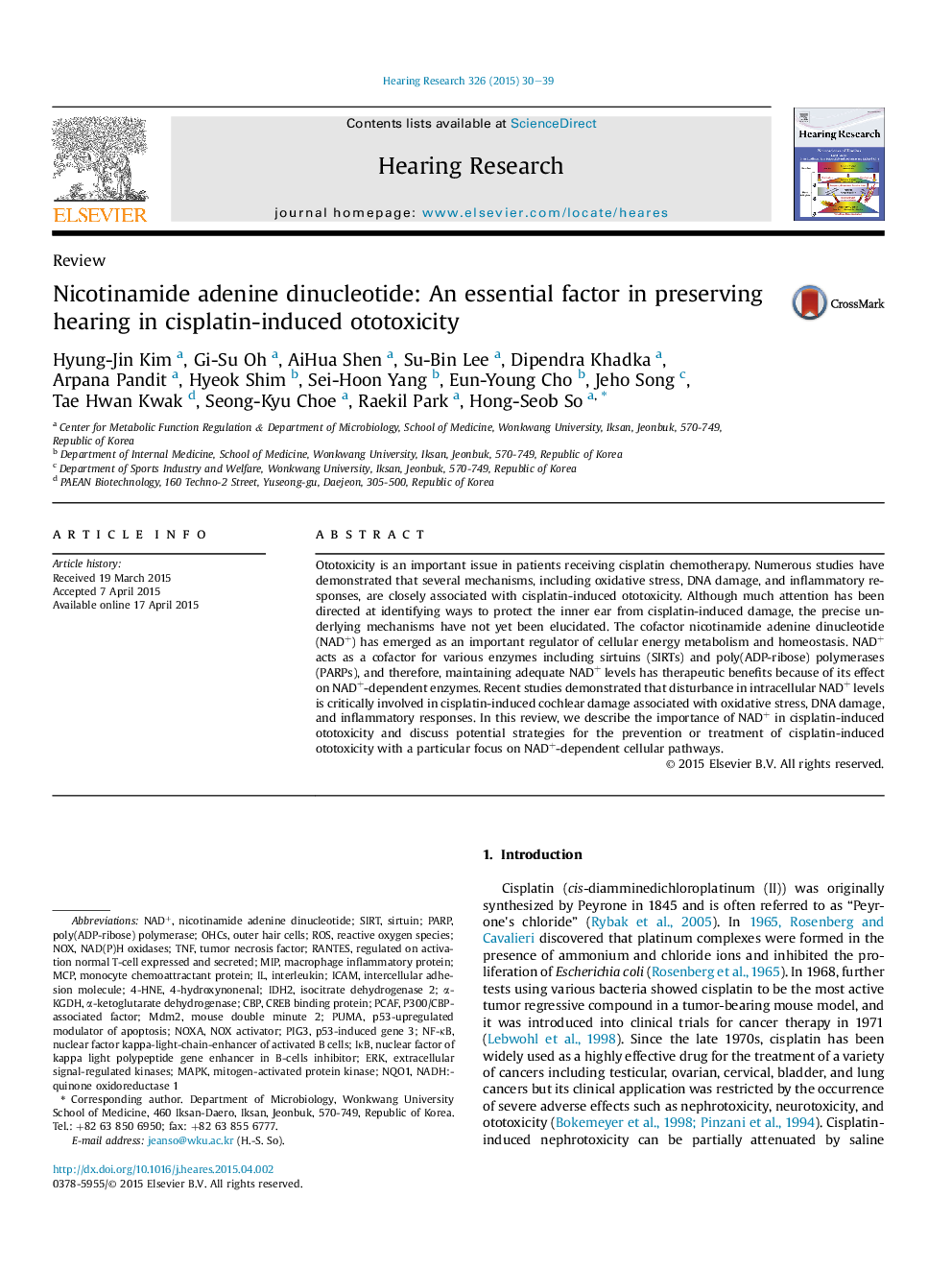| Article ID | Journal | Published Year | Pages | File Type |
|---|---|---|---|---|
| 4355102 | Hearing Research | 2015 | 10 Pages |
Abstract
Ototoxicity is an important issue in patients receiving cisplatin chemotherapy. Numerous studies have demonstrated that several mechanisms, including oxidative stress, DNA damage, and inflammatory responses, are closely associated with cisplatin-induced ototoxicity. Although much attention has been directed at identifying ways to protect the inner ear from cisplatin-induced damage, the precise underlying mechanisms have not yet been elucidated. The cofactor nicotinamide adenine dinucleotide (NAD+) has emerged as an important regulator of cellular energy metabolism and homeostasis. NAD+ acts as a cofactor for various enzymes including sirtuins (SIRTs) and poly(ADP-ribose) polymerases (PARPs), and therefore, maintaining adequate NAD+ levels has therapeutic benefits because of its effect on NAD+-dependent enzymes. Recent studies demonstrated that disturbance in intracellular NAD+ levels is critically involved in cisplatin-induced cochlear damage associated with oxidative stress, DNA damage, and inflammatory responses. In this review, we describe the importance of NAD+ in cisplatin-induced ototoxicity and discuss potential strategies for the prevention or treatment of cisplatin-induced ototoxicity with a particular focus on NAD+-dependent cellular pathways.
Keywords
NF-κBregulated on activation normal T-cell expressed and secretednuclear factor of kappa light polypeptide gene enhancer in B-cells inhibitorα-KGDHTNFPIG3p53-upregulated modulator of apoptosisPCAFNQO1ICAMPARPOHCsCBPsirtuinSIRTIκBERKMCPIDH24-HNE4-hydroxynonenalMIPMAPKMdm2NAD+NOxROSα-ketoglutarate dehydrogenaseNoxaisocitrate dehydrogenase 2interleukinOuter hair cellsP300/CBP-associated factortumor necrosis factornuclear factor kappa-light-chain-enhancer of activated B cellsMouse double minute 2RANTESintercellular adhesion moleculeNAD, nicotinamide adenine dinucleotideCREB binding proteinmacrophage inflammatory proteinmonocyte chemoattractant proteinmitogen-activated protein kinasePoly(ADP-ribose) polymerasePUMAextracellular signal-regulated kinasesReactive oxygen species
Related Topics
Life Sciences
Neuroscience
Sensory Systems
Authors
Hyung-Jin Kim, Gi-Su Oh, AiHua Shen, Su-Bin Lee, Dipendra Khadka, Arpana Pandit, Hyeok Shim, Sei-Hoon Yang, Eun-Young Cho, Jeho Song, Tae Hwan Kwak, Seong-Kyu Choe, Raekil Park, Hong-Seob So,
